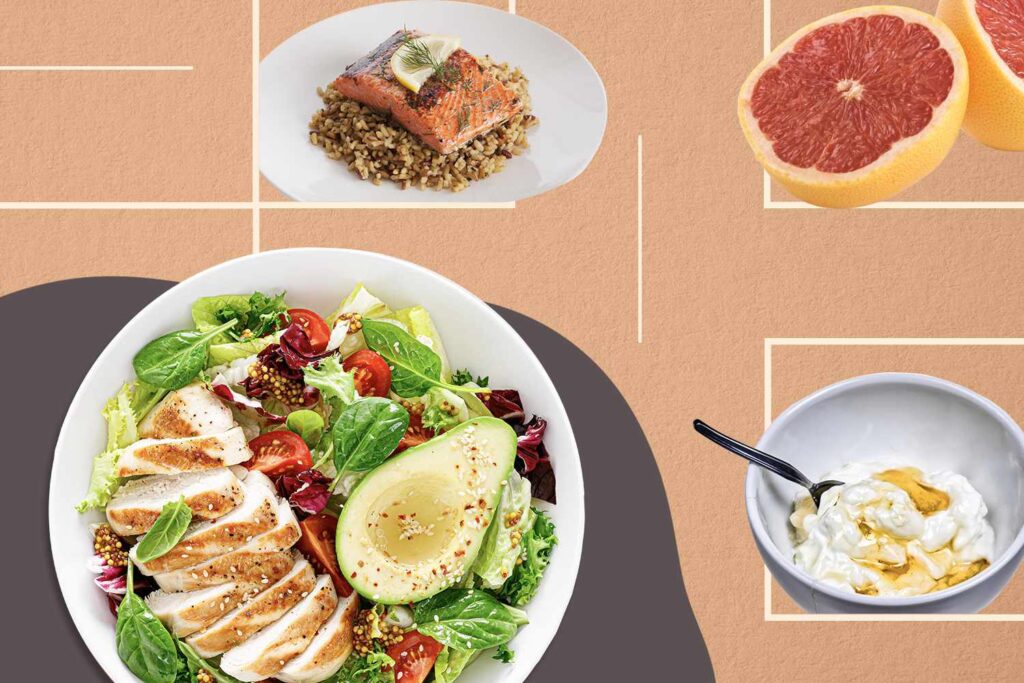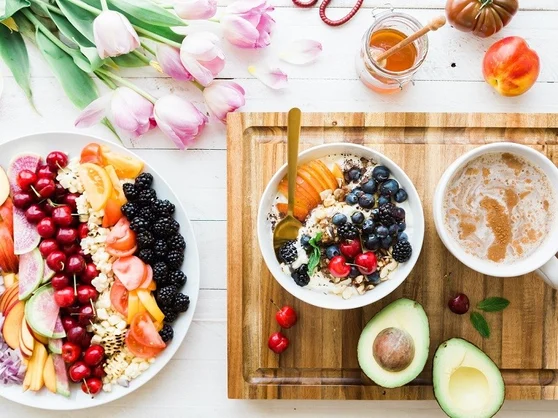Foods You Should Eat Regularly As the saying goes, “you are what you eat.” And when it comes to leading a healthy lifestyle, the food choices we make play a crucial role. Eating a well-balanced diet full of nutritious foods can provide our bodies with the necessary fuel and nutrients to function at its best. However, with so many fad diets and conflicting information out there, it can be challenging to determine which foods are truly beneficial for our health.
In this article, we will explore the top 10 healthy Foods You Should Eat Regularly be included in our diet. These foods not only offer numerous health benefits but are also delicious and easy to incorporate into our daily routine. So, let’s dive in and discover how these 10 foods can improve our overall well-being and help us live a healthier life.
Table of Contents
Toggle10 Healthy Foods You Should Eat Regularly

It’s no secret that incorporating healthy foods into our diet is essential for maintaining good health. But with busy lives and numerous responsibilities, it can be easy to slip into unhealthy eating habits. That’s why it’s crucial to make a conscious effort to include these 10 healthy foods in our meals regularly.
Leafy Greens
Leafy greens are packed with vitamins, minerals, and fiber, making them a must-have in any healthy diet. They are low in calories and high in nutrients, making them an excellent choice for weight management. Some popular leafy green options include spinach, kale, collard greens, and Swiss chard.
- Try incorporating leafy greens into your diet by adding them to salads, smoothies, or stir-fries.
- You can also sauté them as a side dish or add them to soups for an extra boost of nutrition.
Berries
Berries are not only delicious, but they are also loaded with antioxidants, which can help protect our bodies from damage caused by harmful free radicals. They are also a great source of fiber, vitamins, and minerals. Some common types of berries include strawberries, blueberries, raspberries, and blackberries.
- Add berries to your breakfast by topping oatmeal or yogurt with them.
- Snack on them throughout the day or blend them into a healthy smoothie for a quick and nutritious snack.
Avocado
Avocados are a unique fruit that is high in healthy fats, making them an excellent addition to any diet. They are also a good source of fiber and contain essential vitamins and minerals like potassium and folate. Incorporating avocados into our diet can help improve heart health and promote weight management.
- Enjoy avocado on toast for breakfast or as a creamy addition to sandwiches and wraps.
- You can also use avocados as a substitute for mayonnaise in dressings and sauces.
Whole Grains
Whole grains are unrefined grains that retain all parts of the grain, including the bran, germ, and endosperm. These grains are high in fiber, vitamins, and minerals and offer numerous health benefits, such as reducing the risk of heart disease and promoting digestive health. Some examples of whole grains include brown rice, quinoa, oats, and whole-wheat bread and pasta.
- Swap out refined grains for whole grains in your meals, such as using brown rice instead of white rice.
- Experiment with different types of whole grains to find which ones you enjoy the most.
Fatty Fish
Fatty fish like salmon, sardines, and mackerel are rich in omega-3 fatty acids, a type of healthy fat that has been shown to have numerous health benefits. These include reducing inflammation, improving heart health, and promoting brain function. Eating fatty fish regularly can help us meet our recommended intake of omega-3 fatty acids.
- Try incorporating fatty fish into your diet at least twice a week.
- If you don’t like the taste of fish, consider taking an omega-3 supplement to reap its benefits.
Nuts and Seeds
Nuts and seeds are excellent sources of healthy fats, protein, and fiber. They also contain essential vitamins and minerals, making them a nutritious snack option. Some popular nuts and seeds include almonds, walnuts, chia seeds, and flaxseeds.
- Keep a variety of nuts and seeds on hand for snacking or add them to salads or yogurt for an extra crunch.
- Use nut butter as a spread for toast or as a dip for fruits and vegetables.
Legumes
Legumes, such as beans, lentils, and chickpeas, are an excellent source of plant-based protein, making them an essential food for vegetarians and vegans. They are also high in fiber, helping us feel full and satisfied after a meal. Regularly consuming legumes can help lower cholesterol levels and reduce the risk of heart disease.
- Include legumes in meals by adding them to soups, stews, or chili.
- You can also make delicious dips, spreads, and even burgers using legumes.
Fermented Foods
Fermented foods, such as yogurt, kefir, sauerkraut, and kimchi, contain beneficial bacteria known as probiotics. These bacteria help maintain a healthy balance of gut flora and can improve digestion and boost our immune system. Incorporating fermented foods into our diet regularly can have a positive impact on our overall health.
- Enjoy yogurt or kefir for breakfast or as a refreshing snack.
- Add sauerkraut or kimchi to sandwiches or wraps for a tangy twist.
Cruciferous Vegetables
Cruciferous vegetables, such as broccoli, cauliflower, Brussels sprouts, and cabbage, are not only delicious but are also packed with nutrients. They are high in antioxidants and contain compounds that may help fight against certain types of cancer. These veggies are also a good source of fiber, making them beneficial for gut health.
- Try incorporating cruciferous vegetables into stir-fries or roasting them as a side dish.
- Experiment with different cooking methods to find which ones you enjoy the most.
Dark Chocolate
Yes, you read that right – dark chocolate is considered a healthy food! It is rich in antioxidants and can have numerous health benefits when consumed in moderation. Dark chocolate has been shown to improve heart health, protect against oxidative stress, and even boost brain function.
- Enjoy a small piece of dark chocolate as a sweet treat after a meal.
- Choose dark chocolate with a higher cocoa content for maximum health benefits.
Should You Eat These 10 Foods Regularly?

Foods You Should Eat Regularly
Maybe you want to learn more : What are the Benefits of Having Good Health?
Now that we’ve explored the top 10 healthy foods that should be eaten regularly, you may be wondering if it’s necessary to include all of these foods in your diet. The answer is yes and no.
While these foods offer numerous health benefits, it’s essential to have a well-rounded and varied diet. That means including a variety of fruits, vegetables, whole grains, and lean proteins, along with the 10 foods mentioned above. It’s also crucial to listen to your body and choose foods that work best for you and your lifestyle.
Conclusion

Foods You Should Eat Regularly
In conclusion, incorporating these 10 healthy foods into our diet regularly can provide our bodies with the necessary nutrients to maintain optimal health. By choosing a balanced and diverse diet and listening to our bodies’ needs, we can reap the benefits of these foods and achieve a healthier and happier life. So, next time you’re planning your meals, remember to include some leafy greens, berries, avocados, whole grains, fatty fish, nuts and seeds, legumes, fermented foods, cruciferous vegetables, and dark chocolate for a well-rounded and nutritious diet.








